What are the advantages of CNC milling aluminum parts?
With the continuous development of modern manufacturing industry, CNC technology is increasingly used in various metal processing fields. Aluminum, as a lightweight, high-strength, thermally conductive and easy-to-process metal material, is widely used in the automotive, aviation, electronics, machinery manufacturing and other industries. As an important means of processing aluminum parts, CNC milling has become the preferred processing technology for manufacturing high-quality aluminum parts with its high precision, high efficiency and flexibility. This article will explore the advantages of CNC milling aluminum parts in depth, and comprehensively analyze the core value that this advanced processing technology brings to aluminum parts manufacturing from multiple perspectives.
1. CNC milling aluminum parts
CNC milling refers to the process of cutting workpieces by using CNC milling machines to control the motion trajectory of the tool in three-dimensional space through a computer numerical control system. Compared with traditional manual milling, CNC milling accurately controls the movement of the tool through a pre-written program, greatly improving the degree of automation and processing quality of the processing.
Aluminum parts have become an indispensable material in industrial manufacturing due to their superior physical properties, such as light weight, high strength, strong corrosion resistance, and good thermal and electrical conductivity. Applying CNC milling technology to aluminum processing can not only ensure the precision manufacturing of complex parts, but also achieve efficient mass production.
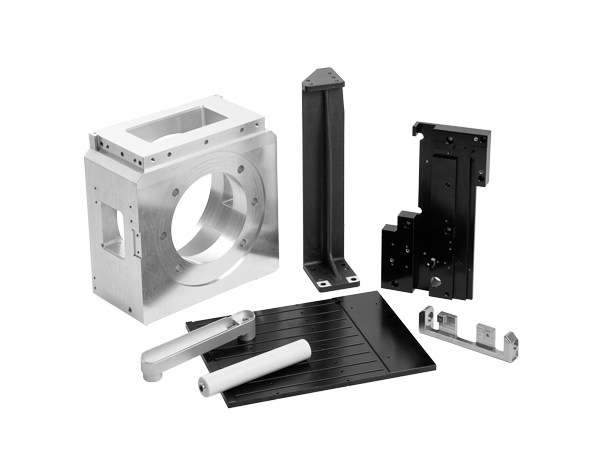
2. The main advantages of CNC milling aluminum parts
High precision and high consistency
One of the biggest advantages of CNC milling is its excellent processing accuracy. The CNC system can accurately control the path of the tool according to the three-dimensional coordinates in the design drawings, so that the dimensional accuracy of the processed aluminum parts reaches the micron level and meets strict tolerance requirements. For industries such as aerospace, electronic communications, etc. that have extremely high requirements for part size and shape, CNC milling is the key to ensuring part performance.
In addition, CNC milling can realize repeated processing of multiple parts through programs to ensure that the size and shape of each product are highly consistent. This consistency not only improves product quality, but also effectively reduces the cost of later assembly and maintenance.
High processing efficiency and saves production time
Traditional manual milling or semi-automatic milling takes a long time and is inefficient when processing complex aluminum parts. CNC milling is controlled by a computer and can control multi-axis motion at the same time to achieve continuous and multi-angle complex processing. Multiple processes can be completed in one clamping, greatly shortening the processing cycle.
The CNC system also supports the optimization of tool paths, reduces idle travel, and improves cutting efficiency. In addition, modern CNC milling machines are mostly equipped with automatic tool changing systems to reduce manual intervention time, making the processing process more continuous and efficient, and meeting the needs of mass production.
Strong ability to process complex shapes
Aluminum parts are often used to manufacture complex curved surfaces and multi-dimensional structural parts. Traditional processing methods are difficult to achieve high-precision complex shape processing. With the help of multi-axis linkage technology, CNC milling can flexibly realize complex processes such as curved surface milling, bevel processing and engraving.
This allows designers to give full play to their creativity and design freedom when designing aluminum parts, without being restricted by the limitations of processing technology, greatly improving the functionality and aesthetics of the product.
Reduce material waste and save costs
CNC milling can effectively reduce waste in the aluminum cutting process by accurately controlling the cutting path and depth. Compared with traditional extensive processing, CNC processing can maximize the use of raw materials and reduce waste generation.
In addition, due to the high processing accuracy and high one-time forming rate of parts, rework and scrap rates are reduced, further reducing manufacturing costs. For higher-priced aluminum alloy materials, the economic benefits brought by material saving are particularly significant.
Automation of the processing process reduces manual dependence
CNC milling uses computer control to achieve highly automated production. Once the processing program is written, it can be reused continuously for many times, reducing the dependence on the operator's manual skills and reducing human errors.
Automation also means that the processing process is safer, and the operator is away from high-speed rotating tools and high-temperature workpieces, reducing the risk of work-related injuries. In addition, automated equipment can operate stably to ensure the continued stability of product quality.
Flexible adaptation to small batch and multi-variety production
Modern manufacturing emphasizes personalization and customization, and traditional processing methods are difficult to quickly switch production tasks. CNC milling only needs to modify the program to switch the processing of different products, without the need to replace complex fixtures and molds, which greatly improves the flexibility of production.
This makes CNC milling particularly suitable for small batch and multi-variety aluminum parts processing needs, meeting the market diversification and rapid response trends.
Good surface quality and processing quality
Aluminum is light and has good thermal conductivity, which is suitable for high-speed cutting. CNC milling with suitable tools and cutting parameters can obtain excellent surface finish and reduce the workload of subsequent polishing or surface treatment.
Good surface quality not only improves the visual effect of the product, but also enhances its corrosion resistance and service life. It is a key factor in the manufacture of high-end aluminum products.
Facilitates the realization of intelligent manufacturing and digital management
Modern CNC milling machines are usually integrated with sensors and monitoring systems, which can monitor the processing status and tool wear in real time, and realize remote monitoring and intelligent scheduling in combination with the industrial Internet.
This intelligent manufacturing model not only improves production efficiency, but also provides data support for aluminum parts manufacturing companies, promotes the digital transformation of production management, and enhances overall competitiveness.
3. Typical applications of CNC milling aluminum parts in the industry
CNC milling aluminum parts technology is widely used in the following industries:
Aerospace: Processing aircraft structural parts and engine components, with extremely high requirements for lightweight and high precision.
Automobile manufacturing: Efficient processing of aluminum alloy parts such as engine cylinders and body frames.
Electronic equipment: Aluminum parts such as radiators and housings require fine processing to ensure heat dissipation performance and size matching.
Mold manufacturing: Aluminum mold cavity processing to improve mold accuracy and life.
Medical equipment: Aluminum parts are used in medical equipment, requiring high cleanliness and complex structure processing capabilities.
As an important technical means of modern manufacturing, CNC milling of aluminum parts has become the mainstream process of aluminum parts processing with its advantages of high precision, high efficiency, strong flexibility and material saving. Whether it is the manufacture of complex structural parts or the flexible production of small batches and multiple varieties, CNC milling can provide strong technical support.
With the development of intelligent manufacturing and Industry 4.0, CNC milling aluminum parts technology will be further upgraded, promoting the aluminum products industry to move towards higher quality, higher efficiency and more intelligent direction, helping manufacturing companies to enhance their core competitiveness and meet the growing needs of the future market.
We specialize in providing high-precision CNC aluminum processing services and are committed to meeting the needs of various industries for high-quality and high-efficiency processing of aluminum parts. Relying on advanced CNC milling technology and multi-axis linkage equipment, we can process complex structures and diversified aluminum alloy parts to ensure that dimensional accuracy and surface quality meet strict standards. Whether it is aerospace, automotive manufacturing, or electronic equipment and medical equipment, we can tailor processing solutions for customers and provide full-process support from sample proofing to mass production. Choosing our CNC aluminum processing service is to choose professional, efficient and quality assurance.
Hot Product
Hot Product
-
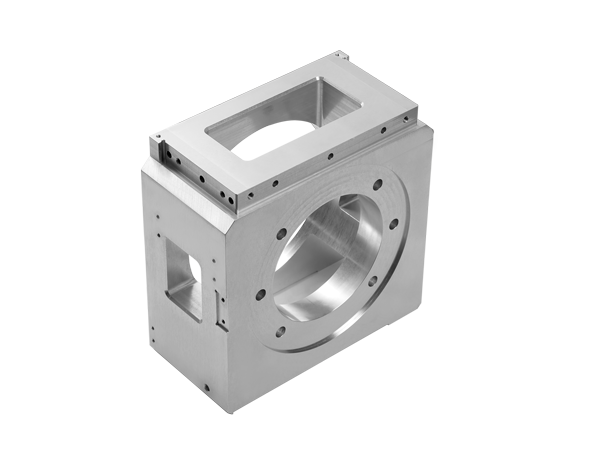 Bearing flange for medical equipmentRead moreBearing flange for medical equipment
Bearing flange for medical equipmentRead moreBearing flange for medical equipment -
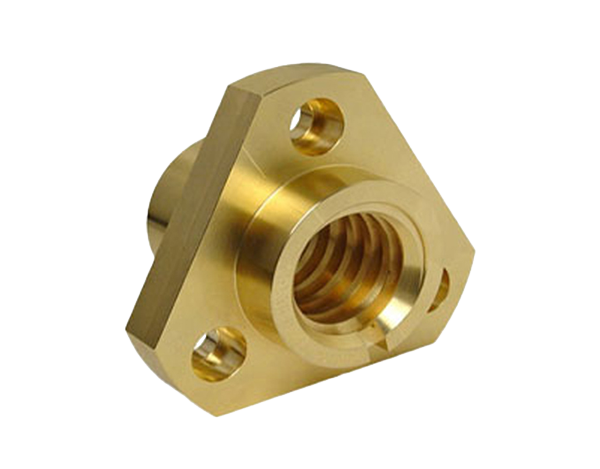 Turning and milling composite precision brass rod sleeveRead moreTurning and milling composite precision brass rod sleeve
Turning and milling composite precision brass rod sleeveRead moreTurning and milling composite precision brass rod sleeve -
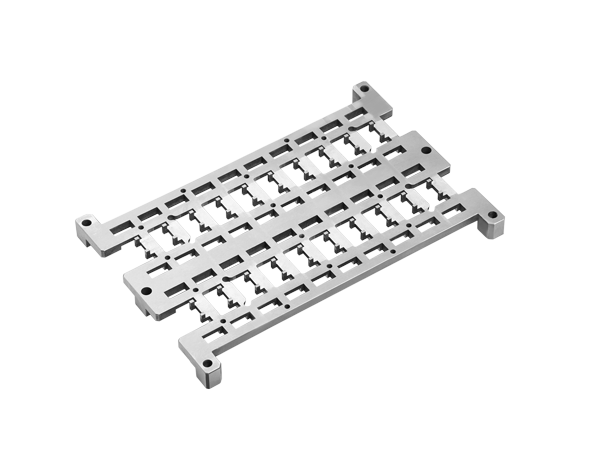 Precision milling of joint product toolingRead morePrecision milling of joint product tooling
Precision milling of joint product toolingRead morePrecision milling of joint product tooling -
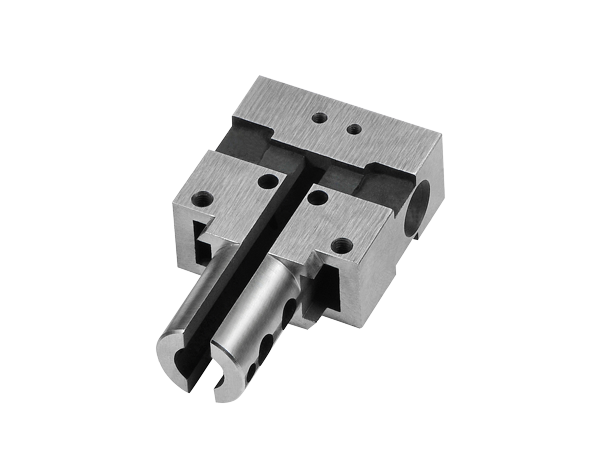 Automation equipment precision stainless steel suction nozzleRead moreAutomation equipment precision stainless steel suction nozzle
Automation equipment precision stainless steel suction nozzleRead moreAutomation equipment precision stainless steel suction nozzle -
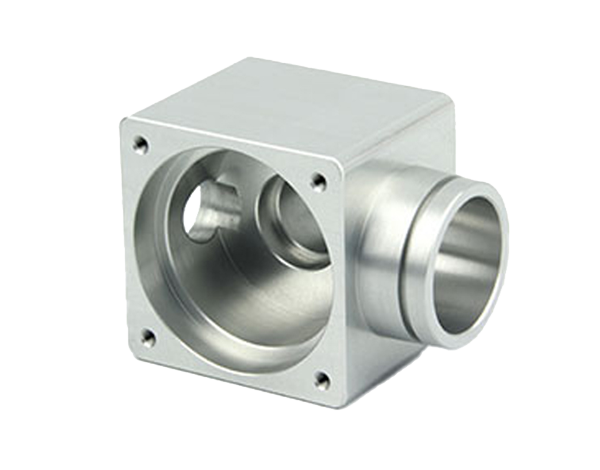 CNC titanium alloy precision square parts processingRead moreCNC titanium alloy precision square parts processing
CNC titanium alloy precision square parts processingRead moreCNC titanium alloy precision square parts processing -
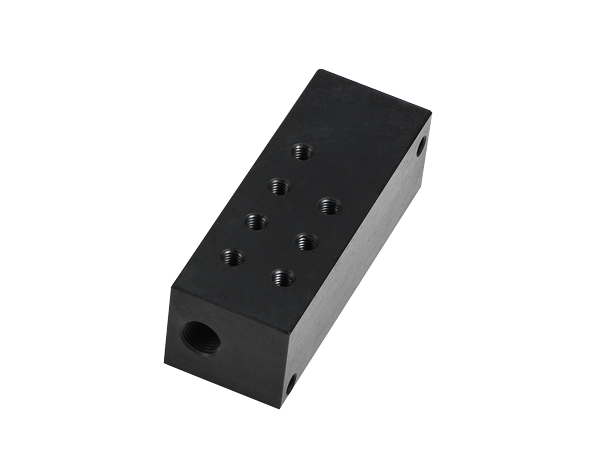 Medical device connector bracketRead moreMedical device connector bracket
Medical device connector bracketRead moreMedical device connector bracket
